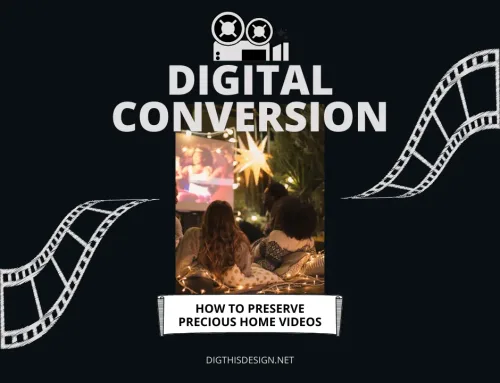The digital marketing landscape is as vast as it is intricate, offering innumerable opportunities for the modern entrepreneur.
This guide is built to empower digital marketing hustlers, with key business strategies, actionable tips — from leveraging cloud-based tools and SEO strategies to exploring peculiar markets like the mushroom industry — and critical financial insights, such as the importance of hiring a Shopify accountant. Let’s navigate and conquer this frontier.
How to Navigate the Digital Marketing World

Embrace Cloud-Based Tools for Business Organization
Organization is not just key, but it is practically an art form in the digital marketing era. Streamlining your operations by implementing cloud-based tools can be a game-changer for every facet of your business.
From managing projects with tools like Asana and Slack to bookkeeping and financial tracking with QuickBooks, the cloud offers endless possibilities. What is the beauty of these digital marketing applications? They save you from the hassles of physical files, and they’re available 24/7 wherever there’s an internet connection.
Furthermore, these tools foster collaboration among team members, offering platforms where tasks, ideas, and updates can be shared in real-time. The right tools create an efficient work environment, freeing up your time to focus on strategic planning, customer engagement, and business growth.
Unlock the Power of Social Media for Brand Awareness
If your business isn’t on social media, you are missing out on an extensive customer base because an average user spends 2 hours and 24 minutes per day on social platforms. Instagram, Facebook, Twitter, LinkedIn, and TikTok are powerful stages where you can spotlight your products, share your brand story, engage with customers, and build loyalty.
This table highlights the unique aspects of each platform and provides actionable strategies for businesses to enhance their brand presence on social media:
| Social Media Platform | Primary Use for Brand Awareness | Example Strategies |
| Visual storytelling and engagement | Use high-quality images, story features, IGTV, sponsored posts, and influencer partnerships. | |
| Broad reach and diverse demographics | Engage with communities through groups, Facebook Live sessions, and targeted ads. | |
| Real-time updates and customer interaction | Tweet regularly, use hashtags, host Q&A sessions, and engage in trending topics. | |
| Professional networking and B2B marketing | Share industry insights, company news, and professional content. Use LinkedIn ads for targeted outreach. | |
| TikTok | Trend-based content and younger demographics | Create viral challenges, collaborate with TikTok influencers, and use TikTok ads for visibility. |
You can boost your reach through sponsored posts and influencer collaborations. Social media insights also provide invaluable data about your audience, their preferences, and behavior, guiding your marketing decisions.
Invest in eye-catching visuals and compelling copy, hold contests or giveaways, and respond promptly and authentically to comments and messages. Visibility equals viability in the digital marketing realm, and social media is the key.
Leverage SEO for Your Digital Marketing Strategy
Search engine optimization (SEO) is a vital strategy for digital marketing entrepreneurship. It involves optimizing your online content to appear in the organic search results of search engines like Google.
An effective SEO strategy ensures that your brand gets discovered by potential customers who are searching for products or services similar to yours. You can leverage SEO by strategically using relevant keywords in your web content, optimizing site speeds, ensuring mobile-friendliness, and securing quality backlinks.
Harness tools like SEMrush or Google Analytics to track your SEO performance and adjust your strategy as needed. Keep in mind that SEO isn’t overnight magic; it’s a long-term investment with lasting payoffs.
Understand and Utilize E-commerce in the Digital Marketing World
Using e-commerce platforms like Shopify can massively extend your business reach. Managing financial aspects on such platforms, however, can be complex. That’s where a Shopify accountant comes in. These professionals are adept at traditional accounting aspects, and they understand the specifics of Shopify’s transactional model. They help in managing sales tax, tracking inventory, analyzing profit margins, and ensuring financial compliance.
Additionally, they assist in generating critical financial reports, providing insights into business performance. This permits you to focus on key operational matters, knowing your financials are being accurately and efficiently managed. A Shopify accountant is to an e-commerce business what a compass is to a navigator — indispensable.
| Quick Tip: When looking for a Shopify accountant, ensure they are well-versed with e-commerce platforms, adept in managing sales tax, able to track inventory, skilled in analyzing profit margins, and capable of generating insightful financial reports. Their knowledge of Shopify’s transactional model should be par excellence. |
Incorporate Chatbots for Efficient Customer Service
The rise of digital entrepreneurship has amplified the importance of efficient customer service, and chatbots are revolutionizing this space. By replicating human conversation through artificial intelligence, chatbots can handle inquiries, resolve common issues, and provide product details 24/7.
They allow businesses to reach more customers and reduce wait times dramatically, leading to increased customer satisfaction. Using tools like MobileMonkey or Dialogflow, you can build your bot or simply integrate third-party bots into your business platform.
Keep the chatbot communication clear and friendly, and don’t forget to provide a seamless option for customers to connect with human representatives when needed.
Emphasize Content Personalization for Customer Retention
Personalizing your customer’s online journey can significantly improve customer satisfaction and customer retention. Tools like HubSpot or Mailchimp enable you to customize your email marketing, tailoring messages based on each customer’s behavior, prior purchases, or search history. This also applies to your website content or product recommendations.
Offering a “customized” shopping experience makes your customers feel valued and acknowledged, and more likely to return to your business. It’s all about forging meaningful connections in the digital world, making each customer feel like the VIP they are.
Explore Unique Opportunities
With every niche being saturated, standing out requires you to delve into unique and untapped markets. An example of this is the mushroom industry. Nowadays, consumers are more health-conscious than ever, and mushrooms are known for their nutrient richness and various health benefits.
Consider building an e-commerce platform selling mushroom-based products, such as fresh mushrooms, organic lion’s mane supplements, and mushroom-infused skincare, beverages, or snacks. Take advantage of SEO strategies, social media digital marketing, and personalized content to increase the visibility of your products and attract potential customers.
The Bottom Line
Succeeding in digital marketing entrepreneurship requires strategic planning, efficient utilization of available digital tools, and a continuous learning mindset. From hiring a Shopify accountant to streamlining customer service with chatbots or venturing into unique markets like mushrooms, each step propels your digital entity toward its success. As technology advances, new avenues will continually open up, and it’s up to you, the entrepreneur, to seize these opportunities and steer your business toward growth and prosperity.
Other posts you might enjoy:
Why Good Graphic Design Is Important for Digital Marketing
Interior Digital Signs: The Next Generation of Business Advertising





